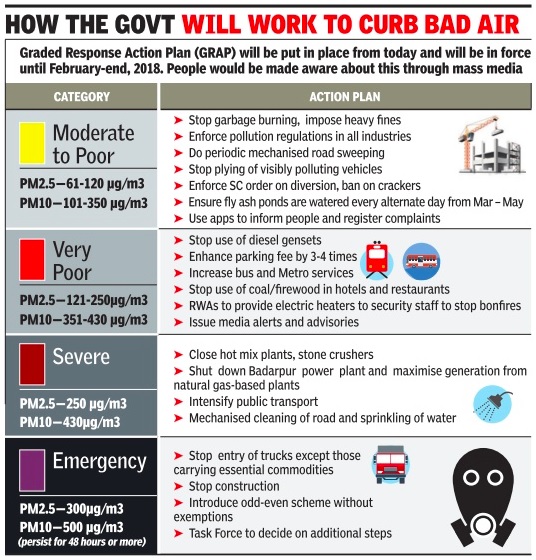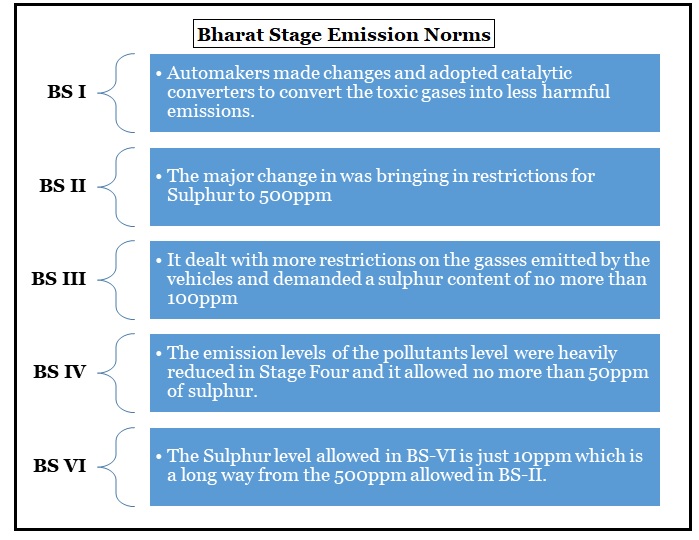Commission for Air Quality Management (CAQM) has lifted the stage III measures of Graded Response Action Plan (GRAP), allowing BS III petrol and BS IV diesel vehicles to run in Delhi and NCR.
Air Quality Index (AQI) is a colour coded index that shows the measure of air quality.
|
Stages |
Air Quality Index category |
Range |
|
Stage I |
Poor |
201-300 |
|
Stage II |
Very poor |
301-400 |
|
Stage III |
Severe |
401-450 |
|
Stage IV |
Severe + |
>450 |

Mashelkar committee recommended a roadmap for implementation of Euro norms based on emission standards for India.
|
About |
Europe Emission Standards |
Bharat Stage Emission Standards |
|
Origin |
In Europe |
Indian government-instituted emission norms |
|
Adoption |
1970 |
2000 |
|
Iterations |
Euro 1, Euro 2, Euro 3, Euro 4, Euro 5, Euro 6 |
BS I, BS II, BS III, BS IV, BS V, BS VI |
|
Exceptions |
All standards are followed with Euro 6 being the latest |
The government decided to leap directly from BS-IV to BS-VI, due to the time it took to move from BS-III to BS-IV |
What is the difference between BS IV and BS VI?

Quick facts
|
Commission for Air Quality Management (CAQM) |
|
Reference